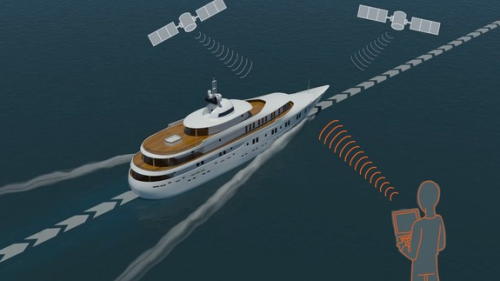Global positioning systems are made to get us home safely in our cars when we don’t know the way, to lead a plane to the runway on a dark, cloudy night, and to guide major ships to port with a landless horizon. This summer, students at the University of Texas at Austin were challenged to use false GPS signals to mislead a 213-foot yacht off its course. The team found it strangely easy to knock this massive vessel of its path with the force of GPS signals.

The students were asked to toy with the radar of an $80 million yacht passing through the waters off the coast of Italy. With the GPS force, the students sent signals toward the yacht’s GPS radar. The fake signals started off faint and then became strong as the ship began getting knocked off its course. The steadiness of the increase in spoofing forces made the changing path go unnoticed on the captain’s radar, which made the ship appear to be going in a straight line as it was supposed to.
When the ship turned, it was felt by all the passengers aboard the vessel. Even though the captain knew the study was taking place, there was no evidence that the radar had been tampered with. This experiment was easy enough to conduct by a team of students; it truly showed the vulnerability in the system and that the topic needed attention quickly.
“This experiment is applicable to other semi-autonomous vehicles, such as aircraft, which are now operated, in part, by autopilot systems,” said Dr. Todd Humphreys, assistant professor at the Cockrell School of Engineering at the Austin campus. “We've got to put on our thinking caps and see what we can do to solve this threat quickly.”
This loophole exposes a major threat to water vessels and aircrafts that are guided by global positioning systems. Below is video from the Cockrell School of Engineering which shows exactly how the team of students sent the ship off-course:
Advertisement
Learn more about Electronic Products Magazine





